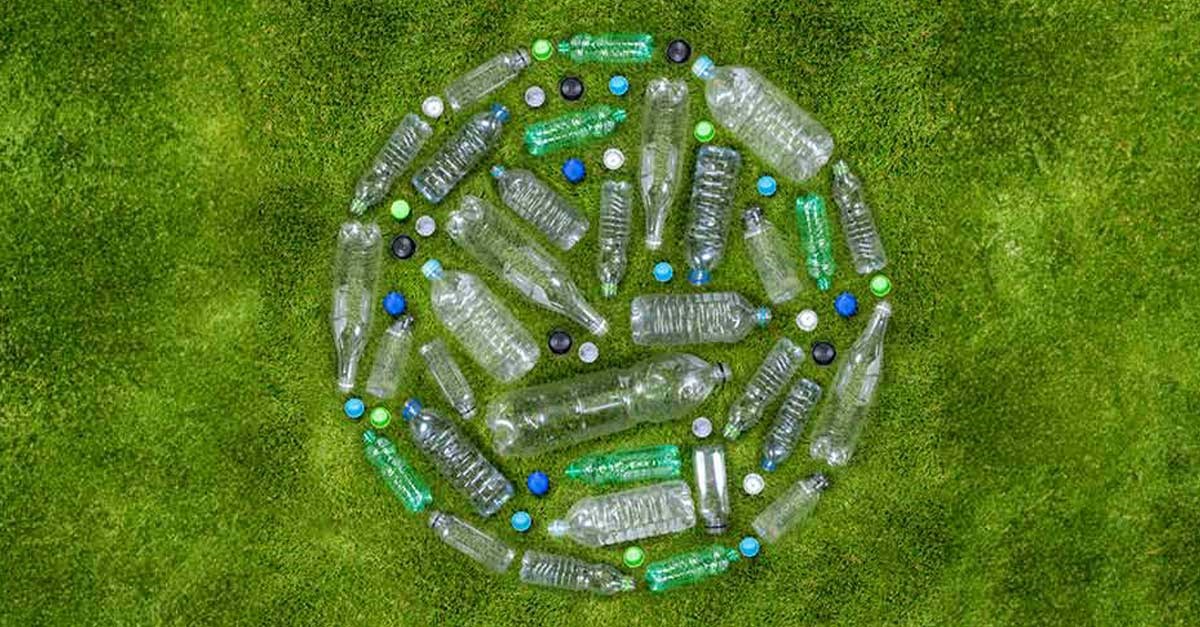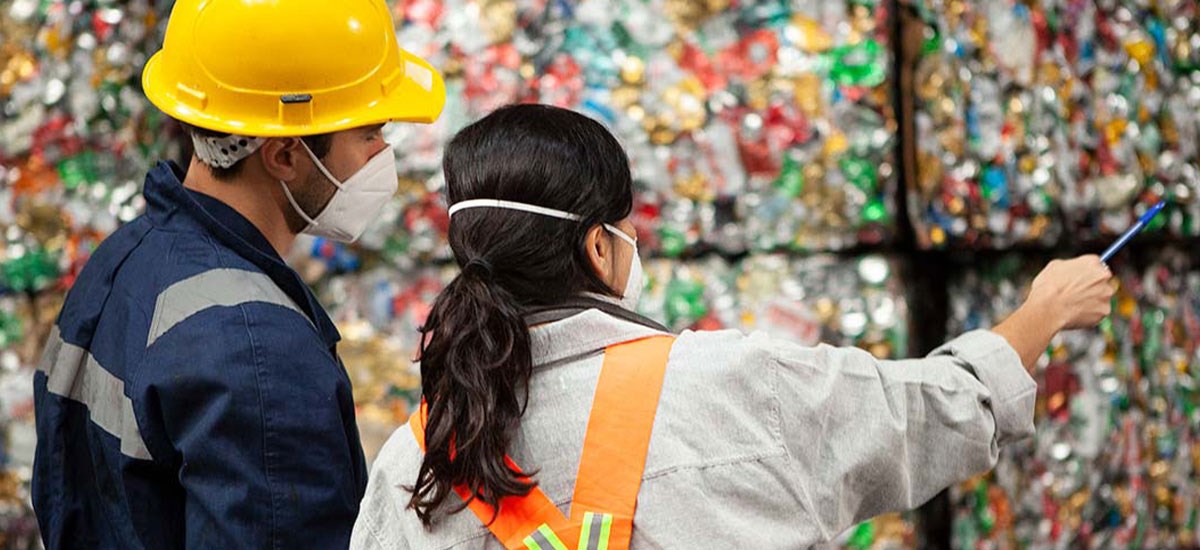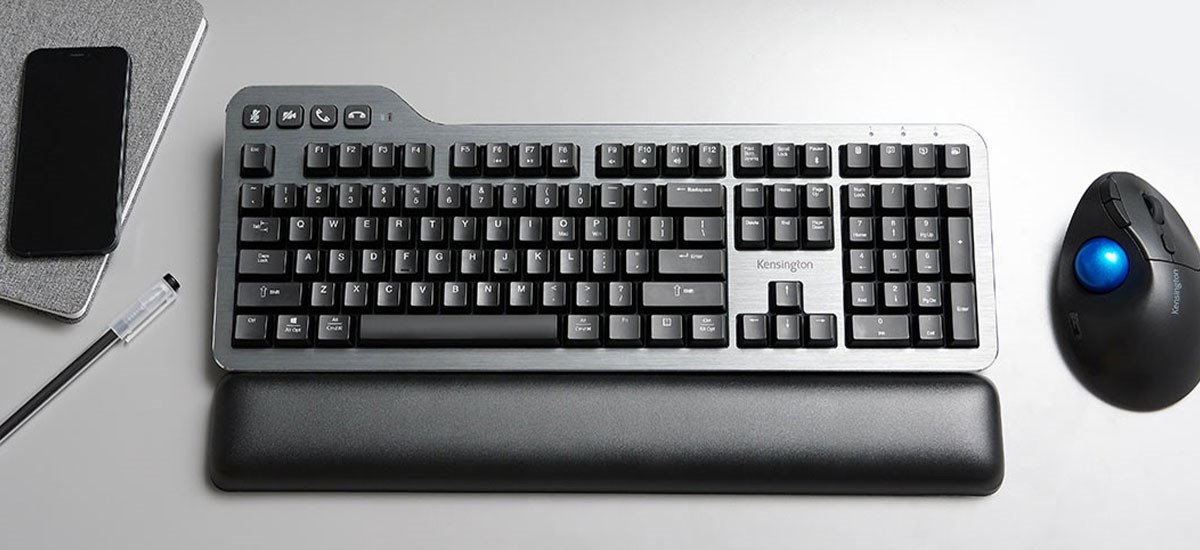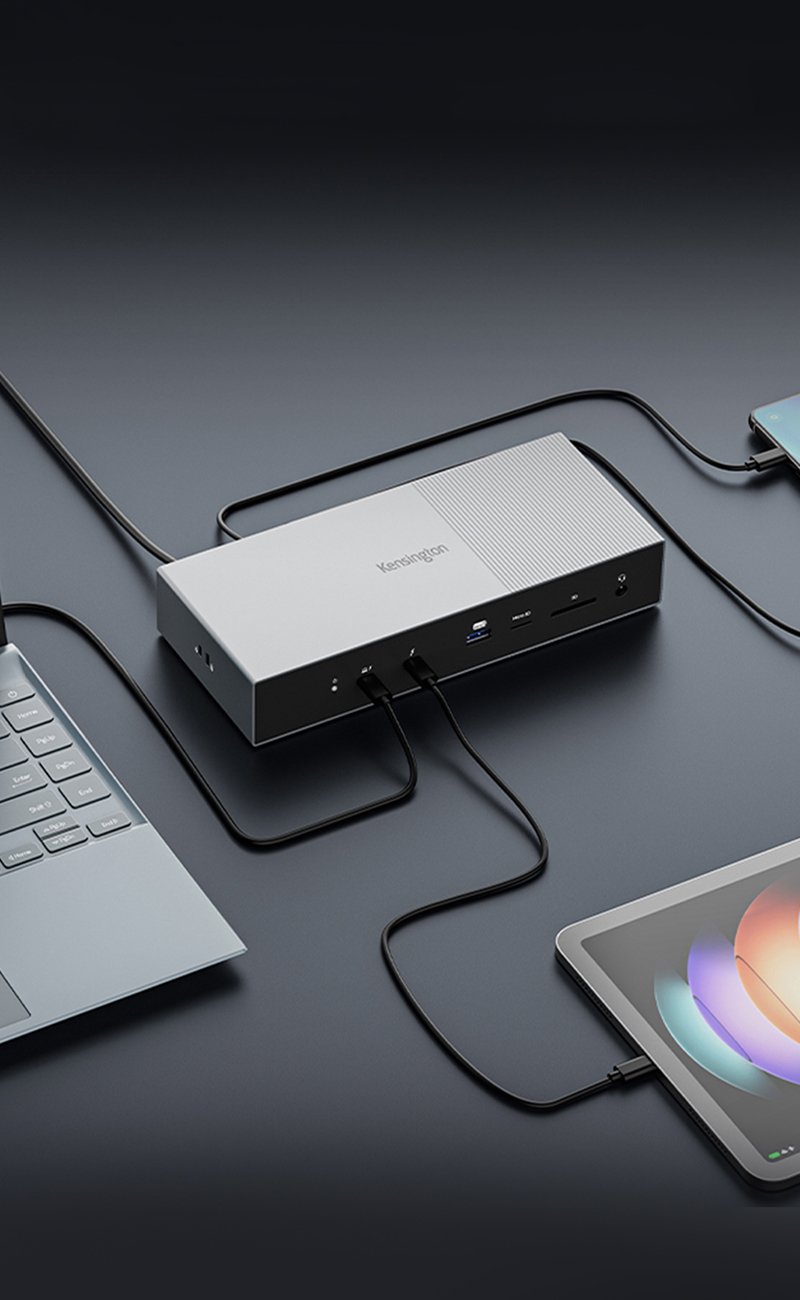 A Look at Two Trackballs Made of at Least 50% PCR
A Look at Two Trackballs Made of at Least 50% PCR
When it comes to choosing sustainable products, an important factor to consider is the amount of recycled content used in the product. In the case of trackballs, using post-consumer recycled post-consumer recycled content (PCR) can have significant benefits for the environment and for your conscience. In this article, we will explore what PCR is, why it is important to use it, and how Kensington is incorporating PRC and other sustainability options into their latest trackballs.
What is Post-Consumer Recycled Content (PCR)?
Post-consumer recycled content is a crucial component of sustainable manufacturing and is a term used to describe the recycled plastic generated by end-users of plastic products. These end-users can be households, businesses, or institutions that have used and disposed of plastic products. PCR is different from pre-consumer recycled plastic, which is recycled before it is used by consumers. Pre-consumer recycled plastic originates from the manufacturing process and includes scrap and waste generated during the production of plastic products.
PCR can be obtained from a variety of sources, including curbside recycling programs, drop-off centers, and commercial recycling facilities. It also includes returns of material from the distribution chain, such as plastic packaging that is returned to the manufacturer.
 Why Use PCR in Products?
Why Use PCR in Products?
Using post-consumer recycled content in products can have significant benefits for the environment and society as a whole. One of the primary reasons to use PCR is to reduce the amount of plastic waste that ends up in landfills or the environment. According to the Environmental Protection Agency (EPA), in 2018, landfills received 27 million tons of plastic, which was 18.5 percent of all municipal solid waste landfilled. Plastics take a long time to decompose, and they can have harmful effects on the environment and wildlife. By using PCR instead of new plastic, we can help reduce the amount of plastic that ends up in landfills and the environment, and ultimately save natural resources.
Another important reason to use PCR is that it uses less energy and resources than producing new plastic. Manufacturing new plastic from raw materials requires significant amounts of energy and resources, including oil and natural gas. The production process also generates greenhouse gas emissions, contributing to climate change. In contrast, recycling plastic uses less energy and resources and reduces greenhouse gas emissions. By using PCR, manufacturers can reduce their carbon footprint, conserve natural resources, and contribute to a more sustainable future.
Overall, using PCR in products is a crucial step towards a more sustainable future. By reducing the amount of plastic waste that ends up in landfills and the environment, conserving natural resources, and reducing greenhouse gas emissions, we can create a healthier planet for future generations.
How is PCR Being Used in Kensington Trackballs?
Kensington has incorporated post-consumer recycled plastic into their latest trackballs—the Pro Fit® Ergo TB550 Trackball (51% PCR) and the Pro Fit® Ergo TB450 Trackball (50% PCR). By incorporating PCR into their products, Kensington is reducing the amount of plastic waste that ends up in landfills and the environment by introducing the use of PCR in these trackballs. Additionally, they are conserving natural resources and reducing greenhouse gas emissions associated with the production of new plastic. Kensington's use of PCR is a testament to their commitment to sustainability and reducing their environmental impact.
In addition to introducing PCR into their products, Kensington has also obtained product certification through SCS Recycled Content Certification—a third-party certification that verifies the sustainability and circularity of products. The certification evaluates products based on their environmental impact, social impact, and circularity. For consumers, Recycled Content Certification provides assurance that the product they are purchasing meets high sustainability standards. It also allows consumers to make informed decisions about the products they buy and the impact those products have on the environment. By choosing products that are certified, consumers can play an active role in reducing their environmental footprint.
 Does Using PCR Affect Quality?
Does Using PCR Affect Quality?
Using PCR does not compromise the quality of products. In fact, PCR can enhance the performance of some products, such as in the case of plastic lumber made from recycled plastic, which is more durable and resistant to moisture than traditional lumber. Kensington requires all of its trackballs to pass high quality standards, so in addition to the TB450 and TB550 trackballs containing more sustainable material, they also provide other major benefits, including precision tracking, adjustable DPI, KensingtonWorks™ customization, and the ability to accommodate small spaces.
Does Kensington Include any Additional Sustainability Practices in its Trackballs?
Kensington is consciously making strides towards sustainability as a commitment to the environment. The Pro Fit® Ergo TB550 Trackball comes with a rechargeable battery—a more sustainable option than traditional disposable batteries, and plastic-free packaging for the aluminum 4D scroll wheel—a step towards reducing plastic waste. In addition, both the TB450 and TB550 trackballs use recycled cardboard and soy-based ink for packaging and printing. By using recycled cardboard and soy-based ink, Kensington is reducing the demand for new materials and conserving natural resources.
Conclusion
When considering changing to a trackball, it is important to look for products that incorporate PCR and other initiatives that are positive for the environment. By doing so, you can help reduce the amount of plastic waste in landfills and the environment, conserve natural resources, and contribute to a more sustainable future. With the increasing demand for sustainable products, it is likely that more and more companies will start incorporating PCR into their products. As a consumer, you can play an active role in reducing your environmental footprint by choosing products that are certified and making ongoing strides towards sustainability.
Learn more about Kensington’s eco-friendly actions.
